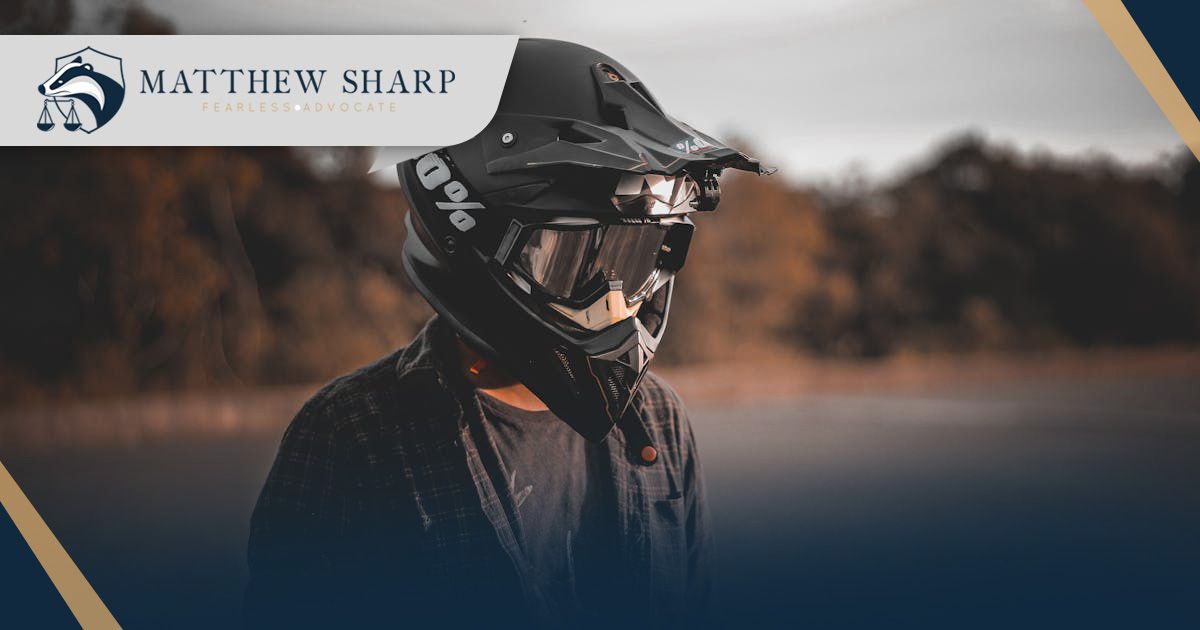Nevada Motorcycle Helmet Laws
Motorcycles are a common sight on Nevada’s desert roads and open highways. Whether you’re cruising through Reno or heading up a scenic mountain route, you can enjoy the freedom and excitement that motorcycles offer.
Still, with that freedom comes responsibilities, especially when it comes to safety.
Nevada enforced clear helmet laws that all motorcyclists and their passengers must follow. These laws exist for speed compliance and to protect riders from the life-altering consequences of motorcycle accidents and injuries.
What are Nevada’s Helmet Law Requirements?
Nevada’s motor vehicle laws require all motorcycle operators (and their passengers) to wear helmets any time the bike is in motion. This includes motorcycles, mopeds, or trikes that are not fully enclosed.
Unlike some states that only mandate helmet use for riders under a certain age, Nevada applies its helmet law to all riders, regardless of age or experience.
The law doesn’t stop at just wearing any helmet—it must comply with U.S. Department of Transportation (DOT) standards. A DOT-compliant helmet has passed specific safety tests and meets federal regulations regarding impact absorption, penetration resistance, and retention system effectiveness.
Helmets that meet these standards typically carry a DOT sticker on the back, although some counterfeit stickers have appeared on the market. Be sure to purchase your helmet from a reputable manufacturer and retailer.
Why Nevada Enforces Universal Helmet Use
Nevada’s universal helmet law aims to reduce the number of fatalities and severe injuries from motorcycle accidents.
According to nationwide studies, proper helmet use can lower the risk of death in a motorcycle crash by almost 40% and the risk of serious head injury by more than 60%, making it clear that helmets aren’t just a personal safety choice but a matter of public health.
Our dry climate and wide-open roads tend to encourage faster riding, which, unfortunately, only increases the chances of serious crashes and severe injuries. Nevada provides consistent safety and makes enforcement more straightforward by mandating that all riders wear helmets.
Now, police don’t have to evaluate a rider’s age or licensing status before issuing a helmet-related citation.
Penalties for Violating Helmet Laws
Riders who ignore Nevada’s helmet law will face consequences. Riding without a helmet is a misdemeanor, and those found in violation are likely to receive a citation and fine. While this infraction may not result in jail time, repeated offenses can lead to escalating fines and a negative impact on a rider’s driving record.
If you were to suffer a head injury while not wearing a helmet, insurers may attempt to reduce compensation by arguing that you contributed to your own injuries.
While Nevada follows a modified comparative negligence rule, failing to follow state safety laws can still play a role in determining fault and damages.
Are There Any Exceptions to the Rule?
Nevada does offer a few limited exceptions to its helmet requirement. For example, helmets are not required for riders operating a fully enclosed three-wheeled vehicle that is manufactured to be driven on public roads.
These vehicles often resemble compact cars more than traditional motorcycles and are equipped with seat belts and other safety features.
While helmets are mandatory, eye protection is only required if the motorcycle doesn’t have a windshield. Goggles or a helmet that includes a face shield are generally recommended to protect riders from dust, debris, and bugs, which is especially important in Nevada’s desert environment.
Helmet Use and Legal Claims
Helmet laws can affect your personal injury claim if you’ve been in a motorcycle accident. \
If you weren’t wearing a helmet and sustained a head or facial injury, the opposing party in a lawsuit may argue that your negligence contributed to the severity of your injury. Courts may reduce compensation under Nevada’s comparative negligence rules if this happens.
Wearing a helmet enhances physical protection and can strengthen a personal injury case.
It shows that the rider took reasonable precautions to protect themselves, which can bolster a claim for full compensation.
Education and Awareness
Nevada supports its helmet laws through a number of public safety and rider education programs.
Motorcycle safety courses often cover the importance of proper helmet fit, how to inspect a helmet for wear or damage, and the benefits of full-face helmets over open-face designs. Riders are encouraged to replace their helmets every five years or sooner if the helmet has been dropped or involved in a crash.
The state also promotes the Motorcycle Safety Foundation’s training programs, which are designed to improve skills and knowledge for new and experienced riders alike. Many of these programs incorporate helmet safety as a core part of rider responsibility.
At the Law Office of Matthew L. Sharp, we believe that Nevada’s motorcycle helmet laws support our state’s commitment to road and rider safety. Universal requirements for helmet use are a proactive stance to help prevent serious injuries and fatalities among motorcyclists and everyone on the road.
Riders benefit from obeying the law and the added protection that helmets provide in the event of a crash.
By understanding and complying with these laws, motorcycle enthusiasts can enjoy Nevada’s beautiful roads with greater peace of mind.
If you’ve suffered injuries in a motorcycle accident that was someone else’s fault, we can help.
CLIENT TESTIMONIALS
“I recently retained the professional services of Matthew Sharp and his law firm to represent my interest in a legal proceeding. Mr. Sharp and his firm shall I say was way over the top in providing excellent and sound legal advice. His professional attitude and attention to detail during the entire process was second to none as well as the rapid and courteous responses from Mr. Sharp and his staff to any and all of my questions regarding my case. Furthermore, I would give my utmost support to anyone choosing Mr. Sharp and his firm in any type of legal representation.”
- RICK S.










